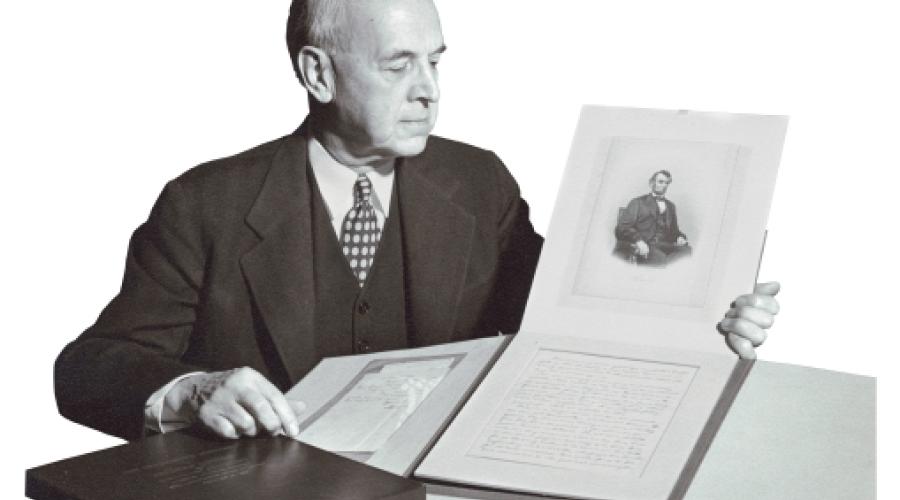
Edmund Ezra Day
Economist and statistician who served as Cornell's fifth president
The career of a university president is often full of surprises. Edmund Ezra Day, who saw the University through an era of drastic change, and was a key actor in bringing the ILR School to Cornell starts with academic rigor before branching into multi disciplinary exposure, administration, and, inevitably, the gentle politics of institutional leadership.
Born in New Hampshire in 1883, Day showed early scholastic talent, and earned B.S. and an M.A. degrees from Dartmouth College, prior completing a Ph.D. in economics at Harvard University, "The history of the general property tax in Massachusetts." As was common in the period, he was instructing well prior to close of his doctoral work, balancing his degree with teaching back at Dartmouth. Shortly after his graduation he joined Harvard's Economics Department and quickly became its Chair. His book, The Growth of Manufactures, 1899-1923, perhaps inspired by World War I service int he U.S. Shipping Board and War Industries Board as a statistician, appeared in 1923. It provided a range of statistical options to characterize a key sector of growth in the U.S. economy. Re-released as Census Bureau Monograph in 1928, Day's concepts about how to think statistically about industry moved forward toward analytic quantification of relative growth. Amidst this work, the American Statistical Association elected him a Fellow in 1921.
Day shifted to the University of Michigan in 1923, a key part of originating its business school. Serving as the first Dean of what would become the Ross School of Business, for many years there was a professorship honoring him in Business Administration.
Proven as an energetic organizer and institutional politician, the Rockefeller Foundation recruited Day to become the first Director of the Social Sciences Division of the wealthy philanthropy. While at Rockefeller for almost a decade,1928-1937, he increased support for key extra-university research structures in the social sciences. Major beneficiaries were the National Bureau for Economic Research (NBER) and the Social Sciences Research Council (SSRC). During his years at the philanthropy he also held a seat on the General Education Board, 1930-1937, serving as director of general education.
Cornell recruited Day to Ithaca in 1937. Specially interested in fostering social scientific approaches to assessing society, it perhaps should come as little surprise that during his Cornell presidency Day would be strongly interested in bringing New York's School of Industrial and Labor Relations to the University. Day met with Irving Ives, who was leading the legislative effort to originate a school in New York's public university system. Day's contribution was to allay the concerns of longtime Cornell factors and trustees, who posited that the School's concerns would not harmonize with Cornell's existing character. Day's diplomacy succeeded, leading to the school's post-war inauguration, one of many over Day's career. An influential president, Day resigned in 1949, due to ill health. His success was recognized by his appointment to the post of Chancellor, giving his energies to the major overall aspects of University development, to the higher levels of fund raising, and to the cultivation of the University’s relations with the State until his health prevented him continuing early in 1950. Edmund Ezra Day died in 1951. The Edmund Ezra Day Professorship was created in 2001.
See also: McKersie, Robert B.; Miller, J. Gormly; Aronson, Robert L.; Julian, Robert R. (1996), The ILR School at Fifty: Voices of the Faculty, Alumni & Friends, p. 14; https://hdl.handle.net/1813/87996.
Adapted in part from John Abowd, Edmund Ezra Day, https://blogs.cornell.edu/abowd/edmund-ezra-day/,
